The air here was too empty for such a sacred space. It felt like a hollow imitation of holy land.
“What do you want to know about the shrine?” the priest asked. “My family and I have been its groundskeepers for as long as anyone can remember. The original shrine office and archives were lost in a fire so a good deal of information was lost, but I’ll do my best to answer your questions.”
“To your knowledge, is this the original location of the shrine?” Noah asked.
“Yes, it is.”
It didn’t make sense. Why was it so empty then? Noah refrained from voicing his thoughts, mulling the possibilities over in silence.
They came to a stop at the end of the flagstone path, at the foot of the modest, roped-off shrine. Instead of the traditional worship hall where parishioners could enter and pay their respects, this one was roped off with a ceremonial braided barricade—one traditionally used to protect an enshrined deity’s sacred resting place. While most shrines had two buildings, an outer worship hall for the public and an inner, sacred shrine, Silverrun had only one.
It was newer than both the stone staircase and flagstone path. And far, far newer than the guardian statues. No moss gathered on the wooden pillars and there were few signs of damage despite the shrine’s age. The priest hadn’t said anything about it, but it seemed this building too had been rebuilt after the fire.
“May I enter?” Noah asked, but he stepped over the rope barrier without waiting for an answer.
“Divine Master Astraeus, please wait!” the priest said, visibly flustered on the other side of the barrier.
“You don’t need to follow,” Noah said, waving his hand dismissively. “I just need to examine something for myself.”
“W-what do you mean?”
“There are things that only I can tell—trade secrets and all that,” he said, ascending the two short steps to the shrine doors. “You can just stay there.”
He paused on the threshold, examining the doors. There were carved patterns in the wood that created a lace-like lattice—it was the only part of the building that appeared to match the age of the surrounding grounds. There was no doubt that these were the original doors. Whoever had commissioned them had done so hundreds of years ago, when these kinds of artisanal skills were still in practice. Even back then, something of this caliber would cost a fortune. Someone had cared a great deal about this shrine when it was first built.
It was a good sign that, even if Noah couldn’t sense his presence now, there might once have truly been a deity here.
“Was it your family who established this shrine?” Noah asked, looking back over his shoulder at the priest.
“No, according to my great-great-grandfather we were entrusted with it by the original keepers.”
“Do you know what happened to them? Or their name, anything?”
The priest shook his head.
“I see.” Noah brushed his fingers against the engraved symbols to the left of the door, written in a long forgotten language. This was the enshrined deity’s title. “Then, at least, surely you must know what god this shrine is dedicated to? ”
The priest frowned, with an expression that was plainly wondering why the shaman would ask something so obvious. “It is dedicated to… the spirit of the mountain,” the priest said.
“No,” Noah said, pointing to the lettering. “Do you see these? This center symbol means ‘mountain’, but others are attached. It’s likely that this shrine isn’t dedicated to the mountain, but to its guardian.”
The priest looked at him dubiously. “Isn’t that the same thing?”
“No, a guardian has their own character, separate from the land,” Noah explained. Based on the priest’s expression, the other man didn’t agree that there was much significance in the distinction. He clarified, “They might be tied to one particular location, but they’re gods of something else.”
As for what the guardian was a god of, Noah couldn’t say. He recognized only two of the several characters. The first was the symbol for ‘mountain’ that he had pointed out to the priest, but the other he recognized could roughly be translated as ‘a fair revenge’. Something about the deity’s unknown title, even the adjunct symbols that he couldn’t read, invoked a deep feeling of… loneliness.
“Just who are you, forgotten all the way out here?” he murmured, frowning softly as he traced the unknown symbols. But Noah wasn’t going to find more answers out here. He shifted his attention to opening the elaborate sliding doors of the inner worship hall, punctuated with the rattle of wood on wood.
“Wait! Divine Master Astraeus, what are you doing?” the priest called in a panic. “You aren’t supposed to go in there, outsiders are strictly forbidden—”
“What am I doing?” Noah echoed, glancing back over his shoulder at the priest. How best to explain this to someone who couldn’t feel mana? “Something like knocking on the door, checking if anyone is home,” he said casually. “You can stay put.”
The inner shrine was modest and well kept. Not one speck of dust tarnished the interior. The room was small, no larger than a standard bedroom and sparsely decorated. A limited number of scrolls were hung on the walls, each filled with standard prayers he’d seen a thousand times before.
Centered on the far wall was a monochromatic ink painting, the only thing that, from what Noah could tell, was specific to the deity. Other than that, the altar was no different from any that Noah had seen before. On it sat a vessel for water, a small bowl of salt, a piece of fruit, and a porcelain sake flask.
“Now, who are you really?” Noah asked, stepping forward to examine the painting that hung above the altar in more detail.
He ran his fingers over the frame, searching for any carved letters or symbols, but there was none. There was no title attached to the artwork, nor any name to identify the deity.
Even here, in the place where he was supposed to be enshrined and honored, his name was unknown. “Seriously?” Noah scoffed.
All there was was the simple, black ink painting itself. It depicted the loosely sketched figure of a man in armor, sitting at the top of a barren cliff. A leopard lay at his back, a sword pierced through the center of its body, embedding it to the earth. No descriptive text or interpretative placard was attached beneath it, which left the image to speak for itself.
It was the most unhelpful portrait of a god that Noah had seen in a long, long time. It was unclear what the relationship between the two figures was, or how they represented the enshrined deity. Even Noah, for all of his experience, didn’t know what to make of it.
“How vague. Is this even an authentic shrine? This almost feels like an imitation,” Noah muttered to himself. “No wonder there’s no spiritual energy here.”
He could only hope that whatever deity that was supposedly enshrined here was actually real and not a cheap, imagined one. A single cushion sat in front of the altar, the fabric an unblemished, vivid red, as if it had never been used. Noah knelt on it, bowing his head in front of the altar.
Even in the Mortal Realm, there were ways to tell whether or not mana was present at a given site. For example, a telltale prickle of awareness at the back of his neck or a sudden chill on his skin. Here, he felt neither.
His brow furrowed and he extended his awareness, reaching farther. He just needed to grasp something. All he needed to know was whether or not Silverrun was still tied to a deity. Any confirmation at all that this guardian existed.
This time, it wasn’t a feeling, but a pair of brilliant golden eyes that flashed across his mind’s eye. They opened slowly, framed by thickly curled white lashes, with distinctly narrow pupils—and then the impression was gone, as quickly as it had come. A quick, fleeting visual.
Noah couldn’t tell whether he was picking up on a memory the altar had once held, or if it was a brief, flickering connection with the Spirit Realm. Either way, in its wake, the altar and inner shrine felt as empty and hollow as the rest of the shrine grounds.
But Noah had gotten what he needed. Whoever this unknown god was, he did still exist. He had withdrawn from this place, seemingly abandoned it, but he did exist. Noah released a breath he hadn’t realized he’d been holding.
It was still possible to help the people of Silverrun. There was enough evidence of the mountain’s guardian deity existing to proceed with the only ceremony that was still capable of turning things around at this late of a juncture.
Behind him, he heard the priest stumbling over the barricade, finally panicked enough to cross the sacred threshold. The priest's footsteps stopped just outside the doors.
“He isn’t here,” Noah said, raising his head. “He might have been, once. But this altar is no longer in use.”
The priest’s face was painted with confusion. “Does that mean that you won’t be able to help us?”
“No.” Noah shook his head, rising to face the priest. “It just means we’re in for a bit of a trek.”
“A trek?” the priest echoed, even more confused.
“Not to worry. I’ll explain the plan and ceremony in greater detail as we gather the materials for it,” Noah said. He stepped out of the inner shrine, closing the sliding door behind him once more to bar future entry. “Once we pick those up, we can get moving. The ceremony will be done by the end of the night.”
“If I may ask, what, exactly, is this plan?” the priest asked, wringing his hands together. “Will it really put an end to all of this death and suffering?”
“Let’s walk and talk,” Noah said, gesturing for the priest to lead the way to the shrine office. “It’s a tried and true method. I assume you’re familiar with the concept of a sacrificial bride?”
“Surely you don’t mean… you?”
“I do.”
“No, no—Divine One, you can’t!” The priest balked. “Others have tried and tried and it doesn’t work. Please, you must reconsider—”
“Well, of course it didn’t work before,” Noah said, cracking a wry, half-smile. “I’m one of a kind.”

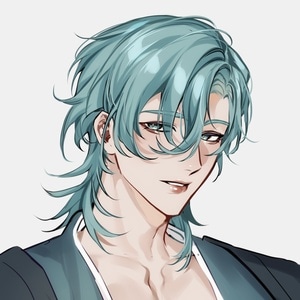
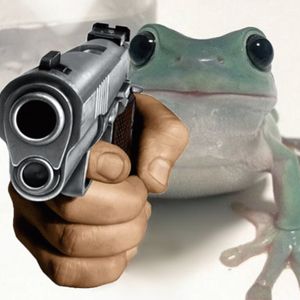

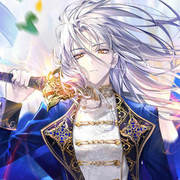
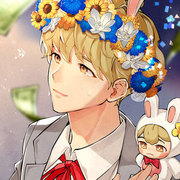

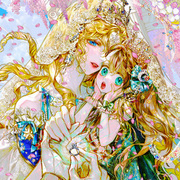
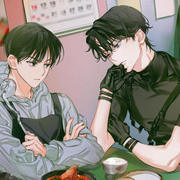

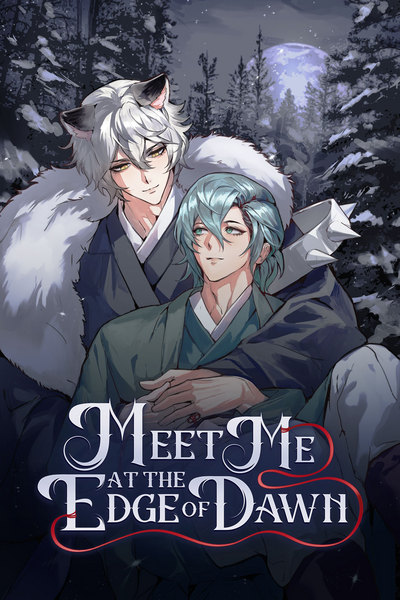
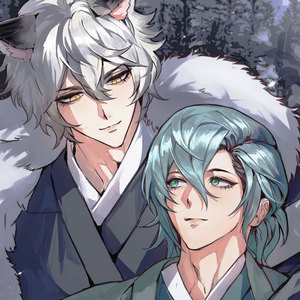
Comments (5)
See all